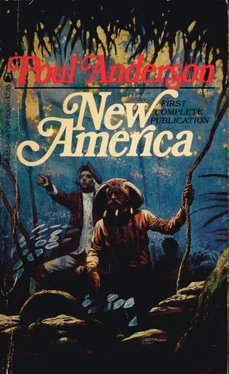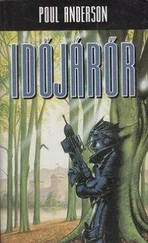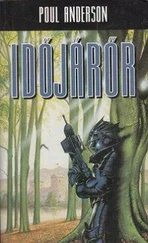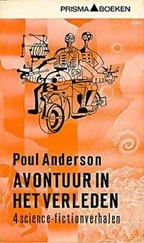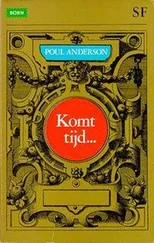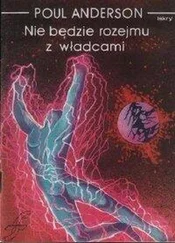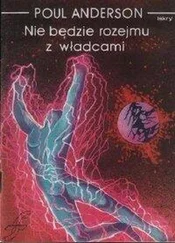“On the one hand, then, you don’t want a government able to take hold of things; on the other hand, you don’t dare let things drift,” Stein complained. “What do you propose, then?”
“Nobody has a neat solution,” Coffin said. “Besides, we hope to avoid imposing any ideology, unless you count freedom itself. However—official policies could maybe encourage an organic development. For instance, under the ‘public order’ heading, government might create incentives for employers to treat their employees as human beings, individual human beings, not just interchangeable machines or a faceless organized mass. Better conditions could be maintained for the growth of small than big businesses; a strict hard-money rule ought to help there, if it includes some provision for persons down on their luck. On the larger scale, under ‘environmental protection,’ maybe agreements can be reached which’ll distribute economic activity in such ways that everybody will have a chance to get ahead, no matter where he lives. Voluntary agreements, of course, with a profit motive behind them, but entered into under the advice of scholars who see more than just the immediate profit.”
Coffin sighed. “Those are superficial examples,” he finished. “We can’t prescribe the behavior of future generations. All we can do is be aware of certain dilemmas, present and future, put forth ideas, and hammer into our successors that they will face the future ones and had better start preparing well in advance.”
Stein rode sunk in thought. Wind lulled, leaves whispered. Two kilometers off, a herd of cero-there left a wood and started across the sward in graceful bounds.
Finally he said: “I guess I see what you’re driving at, Daniel. Forty or fifty years from now, the proletariat problem should still be fairly small. Only a few people, at worst, should be in that uprooted condition. The economy will be expanding, jobs potentially plentiful, lots of surplus wealth which can be used to help the laid-off city worker get on his own feet. Nothing unmanageable, given common sense and good will.
“Except… then Earth dumps five thousand newcomers on us.”
Coffin nodded. “Yes,” he said.
“Who’ll get no chance to become freeholders. Who’ll have to adapt to the higher gravity, the longer day and shorter year, a million different matters before they can work. And then they aren’t likely to have skills that’re in demand, considering how even the simplest things must be done otherwise on Earth. Instead of occasional individuals who need a helping hand once in a while, High America gets an instant proletariat!”
“For which it won’t be prepared, George, because it won’t have had experience with the type. Shucks, I certainly wouldn’t know how best to treat them, and doubt if the most sophisticated Anchor dweller could make a much better guess than mine.”
“It’ll hardly affect the lowlands.”
“Oh, yes, it will, if we want to keep a unified planet.” Coffin paused. “Or a free one. Elbow room doesn’t guarantee liberty. Some of the harshest empires in Earth history had all kinds of wide-open spaces.”
He straightened in the saddle, though he was becoming to feel weariness from a ride that he would once have considered short. “That’s why I’m traveling around, talking to influential and respected persons like you,” he said. “I’ve got to have the backing of this community—because I mean to make a damned radical proposal when the convention reopens.”
Stein considered his friend for a while before he responded. “I may or may not agree with you, Daniel. Frankly, here is my country, the country I care about, not High America. But I’ll hear you out, of course.”
And if need be, Coffin thought, I have reserves of my own to call on. He began speaking.
The de Smet house, where Coffin stayed when he visited Anchor, lay well out from the center of town, in an area where most homes stood on broad grounds, amidst groves and gardens. Street lamps were infrequent, and trees broke the city’s light haze. Thus, there was little to blur the sky when the man from Lake Moondance went for a walk.
Winter on the altiplano had turned silent and cold. The face stung, the body was glad of a thick coverall, breath felt liquid as it entered the nostrils and came back out in stiff white puffs. Where byways were unpaved, the ground rang underfoot. Elsewhere reached snow, frost-glittering until vision faded out in distance and shadowless. The occasional yellow shining from windows looked infinitely tender but infinitely tiny. Far in the east, the peaks of the Hercules reared glacier-sharp.
Overhead stood heaven. One rarely saw such a wonder in the lowlands, however many other wonders they gave in exchange. Stars crowded the dark, sparks of frozen fire which melted into the Milky Way; tonight that great torrent gleamed like sea-glow. Three sister planets burned in copper, silver, and amber. Among them hastened pygmy Sohrab, while Raksh hung near the half, so low in the west that illusion made it huge, and cast the shadows of trees and drifts long across the land.
Eva had always loved this sight.
The path reached the Emperor River and followed its bank. It sheened hard frozen. On its opposite side, buried fields and pastures rose toward hills and wilderness. Against that remote murk glimmered a few lights, from one of the villages which were springing up across the plateau.
To Coffin, sound seemed muffled in this thin air; and in these his latter years he had grown hard of hearing. He wasn’t aware of the skaters until he rounded a bend in the river, screened by a clump of plume oak, and saw them. Here a road was carried by a bridge. Around its piers and across the ice frolicked a score of boys and girls. They whizzed, they swooped, they laid arms about each other’s waists and took wing. Their shouting and laughter crackled in the chill.
Coffin went onto the span to watch. Abruptly he noticed another already present. The lad was tall, but not only was he wearing a black outfit, the African share of his ancestry made his face almost invisible at a distance. The skates which he had removed caught the moonlight at his feet.
“Why,… hullo,” Coffin said, peering.
“Oh.” The youth turned. “Mr. Coffin. How do you do, sir?”
The man recognized him, Alex Burns, son of a neighbor of de Smet: a bright, well-mannered chap. “Taking a rest?”
“Not exactly, sir.” Alex gripped the railing and stared away. “I got to thinking.”
“On a night like this? Seems as if you’re missing a lot of fun. Sure wish I could get in on it.”
“Really? Sir, you’re welcome to borrow my skates.”
“Thanks, but at my age, a fall under Rustum gravity can be a serious matter. And I’ve got business ahead of me.”
“Yes, sir. Everybody knows that.”
Then Alex swung around again to confront him and said in a desperate voice, “Mr. Coffin, could I talk with you?”
“Certainly. Though I don’t know what a rusticating gaffer like me has to say that’d be of use.” Yet I remember my sons at your age—how short a while ago!
“This news… about the fleet coming from Sol —it’s true?” Somehow the adolescent squeak in midquestion was not ridiculous.
“As far as we can tell. Twenty light-years between makes for slow communications. The Earth government may have changed its mind meanwhile. They were phasing out space travel when your ancestors left. Too costly, given a bloated population pressing on resources worn thin. Not quite in their world view, either. The culture was turning more and more from science and technology to mysticism and ceremony.”
“Th-that’s what my teachers say. Which is how come I’m scared this is a, a false alarm.”
Читать дальше
